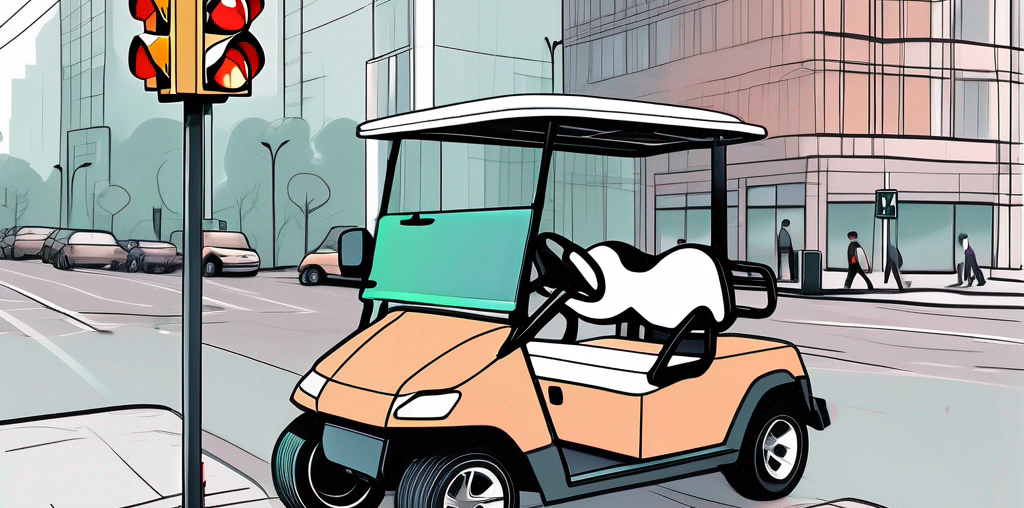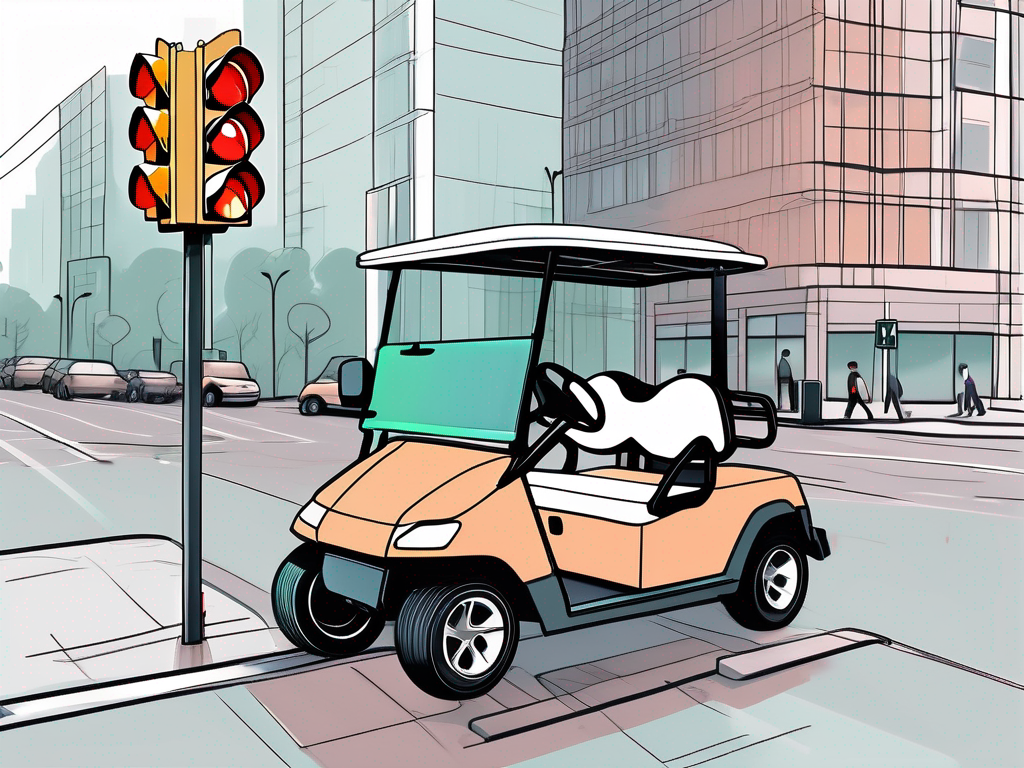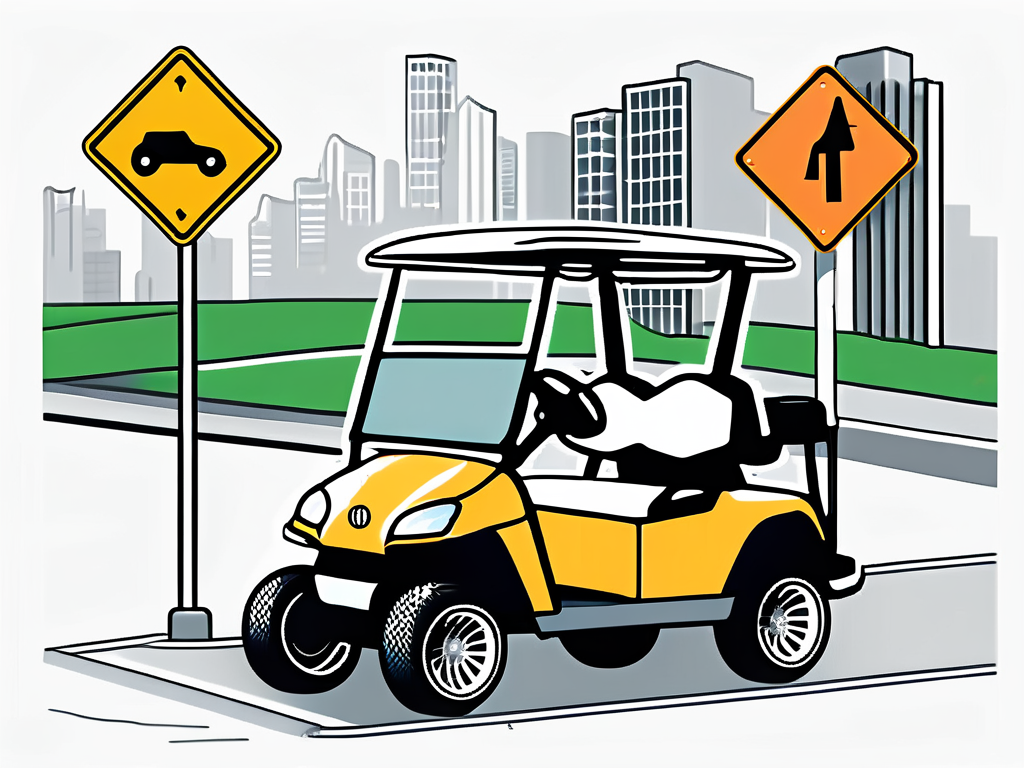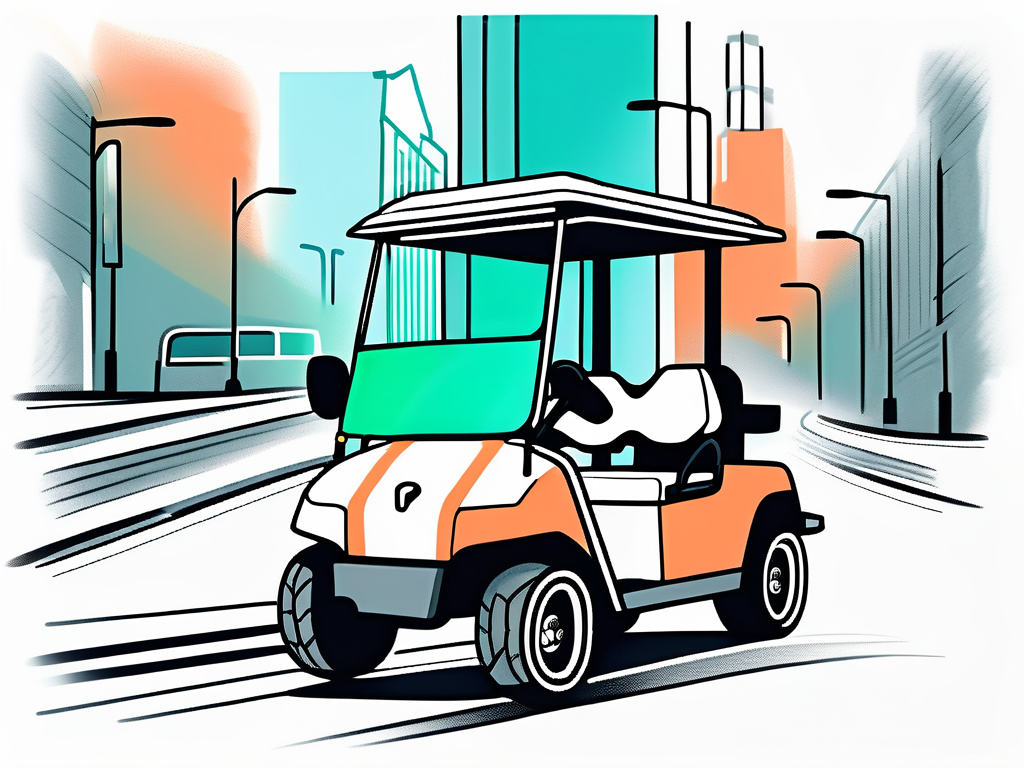|
Getting your Trinity Audio player ready...
|
Golf carts are a popular mode of transportation in many communities, especially in retirement communities and golf resorts.
However, their use on public roads is often a point of debate. Are golf carts street legal?
Let’s explore the answer to this question and understand the requirements and limitations associated with using golf carts as street-legal vehicles.
Understanding Street Legal Vehicles
Before delving into the specifics of golf carts, it is important to understand what street legal vehicles are.
Street legal vehicles are those that meet certain criteria set by the government to ensure their safety and compliance with traffic laws.
These vehicles are allowed to operate on public roads and streets alongside regular cars and trucks.
Street legal vehicles play a crucial role in urban transportation, providing alternative modes of travel that are eco-friendly and cost-effective.
These vehicles come in various forms, including electric scooters, low-speed vehicles, and neighborhood electric vehicles, offering commuters flexible options for short-distance travel.
Definition of Street Legal Vehicles
A street legal vehicle is typically defined as a motorized vehicle equipped with the necessary safety features and equipment required by law.
These features include headlights, taillights, turn signals, rearview mirrors, seat belts, and a windshield, among others.
Additionally, street legal vehicles must meet certain performance criteria, such as a minimum speed limit and maximum weight restrictions.
Street legal vehicles are designed to ensure the safety of both the driver and other road users. The inclusion of safety features like seat belts and mirrors enhances visibility and minimizes the risk of accidents.
By adhering to specific performance standards, street legal vehicles contribute to the overall efficiency and orderliness of urban traffic flow.
Requirements for Street Legal Vehicles
To be considered street legal, vehicles must comply with the specific requirements outlined by the governing transportation authority.
These requirements may vary from state to state or country to country. It is essential to consult the local laws and regulations to understand the specific requirements for street legal vehicles in your area.
Meeting the requirements for street legal vehicles involves thorough inspections and adherence to technical specifications.
Manufacturers play a vital role in ensuring that their vehicles meet the necessary standards before they are approved for road use.
Regular maintenance and compliance checks are essential to keep street legal vehicles in optimal condition and uphold safety standards on public roads.
Golf Carts and Street Legality
Golf carts are small, electric, or gas-powered vehicles primarily designed for transporting golfers and their equipment around golf courses.
Due to their compact size and slow speeds, golf carts may seem like ideal vehicles for short-distance commutes within communities. However, their street legality is often restricted.
Despite their limitations, golf carts have evolved over the years to cater to a wider range of uses beyond the golf course.
Some models now come equipped with features like headlights, taillights, and turn signals, making them more suitable for street use.
Additionally, advancements in technology have led to the development of street-legal golf carts that meet the necessary safety requirements for road travel.
Features of Golf Carts
Golf carts typically lack some of the essential features required for street legal vehicles.
They are usually not equipped with headlights, taillights, or turn signals, making them less visible to other drivers.
Many golf carts also lack seat belts, which are crucial for passenger safety. Moreover, their relatively low-speed capabilities pose a potential hazard when sharing the road with faster vehicles.
However, some enthusiasts have customized their golf carts to meet street legal standards by adding safety features and modifying their speed capabilities.
These modified golf carts, known as “street-legal golf carts,” undergo inspections and upgrades to comply with local regulations, allowing them to be used on public roads.
Typical Use of Golf Carts
Despite not being street legal in most cases, golf carts find extensive use in closed communities, such as retirement communities and gated neighborhoods.
In these areas, golf carts are often used for short trips to the grocery store, community facilities, or nearby residences.
They provide a convenient and eco-friendly mode of transportation within these limited areas.
Furthermore, golf carts have gained popularity in recreational settings such as campgrounds, resorts, and industrial facilities.
Their quiet operation and zero emissions make them an attractive option for navigating large properties without causing noise pollution or environmental harm.
As a result, golf carts have become versatile vehicles that serve various purposes beyond their traditional role on the golf course.
Legal Requirements for Golf Carts
While golf carts may not be inherently street legal, certain legal requirements can be met to make them eligible for on-road use.
These requirements primarily focus on ensuring the safety of both the golf cart occupants and other road users.
One crucial aspect to consider when aiming to make a golf cart street legal is the classification of the vehicle.
Different jurisdictions may have specific classifications for golf carts, such as Low-Speed Vehicles (LSVs) or Neighborhood Electric Vehicles (NEVs).
Understanding the classification can help determine the exact legal requirements that need to be met.
Safety Equipment for Golf Carts
To make a golf cart street legal, it is necessary to equip it with the appropriate safety features required by the governing transportation authority.
This includes installing headlights, taillights, turn signals, horns, rearview mirrors, and seat belts.
Additionally, windshields and windshield wipers may be required, depending on the jurisdiction.
Furthermore, some regions may mandate the installation of safety features such as roll-over protection systems (ROPS) and electronic stability control (ESC) to enhance the overall safety of the vehicle and its occupants.
Speed Limitations for Golf Carts
Speed limitations are another important aspect to consider when making a golf cart street legal.
In many areas, golf carts are limited to speeds of 20-25 miles per hour (32-40 kilometers per hour).
These speed limits ensure that golf carts can operate safely alongside regular vehicles without impeding traffic flow.
Golf cart owners need to adhere to these speed restrictions not only to comply with the law but also to maintain a safe environment for all road users.
Some jurisdictions may require the installation of speed-limiting devices to ensure that the golf cart does not exceed the designated speed limit.
State Laws Regarding Golf Carts
The street legality of golf carts can vary significantly from one state to another. While some states allow golf carts on certain roads, others strictly prohibit their use outside of private property or designated recreational areas.
It is crucial to familiarize yourself with the state laws and regulations regarding golf carts to avoid any legal complications.
Understanding the nuances of state laws regarding golf carts is essential for all owners and operators.
For example, in states like Florida and Arizona, golf carts are a common sight on public roads, especially in retirement communities and beach towns.
These states have specific regulations in place to ensure the safe integration of golf carts with other vehicles on the road.
Variations in State Laws
State laws regarding golf carts can differ in terms of permitted road types, speed limits, safety equipment requirements, and licensing requirements.
Some states may also require golf cart owners to obtain a specific license or permit for on-road use.
These variations highlight the importance of understanding the laws specific to your location.
Moreover, certain states have taken proactive measures to promote the use of golf carts as eco-friendly transportation options.
For instance, California offers incentives for low-speed vehicles like golf carts, encouraging their use in urban areas to reduce carbon emissions and traffic congestion.
Penalties for Non-Compliance
Failure to comply with state laws and regulations regarding golf carts can result in penalties and fines.
These penalties may vary depending on the severity of the violation and can include fines, impoundment of the golf cart, or even suspension of driving privileges.
It is crucial to abide by the applicable laws to ensure the safe and legal operation of the golf cart.
Additionally, some states have implemented educational programs and safety initiatives to promote responsible golf cart usage.
These programs aim to educate drivers on proper driving etiquette, maintenance practices, and pedestrian awareness to enhance overall safety on public roads and recreational areas.
Making Your Golf Cart Street Legal
If you are considering making your golf cart street legal, certain modifications and processes need to be followed.
It is important to note that the necessary modifications may vary depending on your location and specific requirements.
Necessary Modifications
The modifications required to make a golf cart street legal typically involve installing the necessary safety equipment, including headlights, taillights, turn signals, mirrors, and seat belts.
Additionally, speed modifications and the addition of street legal tires and wheels may be necessary to meet the requirements of the governing transportation authority.
Process for Legalization
The process for legalizing a golf cart may involve several steps, such as obtaining the required permits or licenses, completing vehicle inspections, and providing proof of compliance with safety and roadworthiness standards.
The exact process can vary, and it is essential to consult the local authorities or transportation department for specific guidance.
Conclusion
The street legality of golf carts depends on various factors, including the specific laws and regulations of your area.
While golf carts are not typically street legal, making them meet the requirements can enable their use on public roads.
It is crucial to understand the legal requirements, safety considerations, and modification processes associated with making a golf cart street legal.
Always prioritize safety and compliance to ensure a smooth and legal operation of your golf cart.








